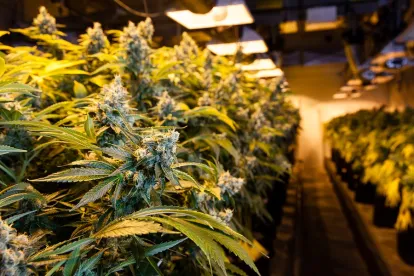On March 31, 2021, New York joined 15 other states (including New Jersey) that have legalized marijuana for recreational use when Gov. Andrew Cuomo signed the New York State Marijuana Regulation and Taxation Act (MRTA). Under the MRTA, adults 21 years or older can now possess up to three ounces of marijuana (or 24 grams of concentrated versions of the cannabis plant) outside of their home. In their home, adults may store up to five pounds of the plant. While retail sales of marijuana will not begin until 2022, most aspects of the law have taken immediate effect.
The MRTA consolidates laws affecting recreational adult-use of cannabis with New York’s existing laws regarding medical marijuana, and the state’s cannabinoid hemp program. Oversight for these laws will be managed by the newly formed Cannabis Control Board and Office of Cannabis Management.
Impact on Employers
With the new law, New York also joins a number of other states in extending employment protections to individuals who use recreational marijuana. Under NYS Labor Law Section 201-d, employers are generally prohibited from discriminating against, terminating, or refusing to hire, employ, or license individuals based upon their participation in legal recreational or political activities or use of consumable products.
MRTA amends Section 201-d by prohibiting employers from refusing to hire, employ, or license, terminate, or otherwise discriminate against individuals because of their lawful use of marijuana outside of work hours, off the employer’s premises and without use of the employer’s equipment or other property.
However, the amendments to Section 201-d provide certain protections to employers too. Specifically, an employer that takes action against an individual for cannabis-related reasons has not violated the new law if:
-
The employer's actions were required by state or federal statute, regulation, ordinance, or other state or federal governmental mandate;
-
The employee is impaired by the use of cannabis, meaning the employee manifests specific articulable symptoms while working that decrease or lessen the employee's performance of the duties or tasks of the employee's job position, or such specific articulable symptoms interfere with an employer's obligation to provide a safe and healthy workplace, free from recognized hazards, as required by state and federal occupational safety and health law; or
-
The employer's actions would require such employer to commit any act that would cause the employer to be in violation of federal law or would result in the loss of a federal contract or federal funding.
The MRTA also modifies New York’s medical marijuana laws by expanding the types of medical conditions for which marijuana can be prescribed as well as the acceptable forms of the plant and methods of use. Prior to the MRTA, patients seeking medical marijuana were required to show they were diagnosed with a severe, debilitating, or life-threatening condition and, as a result of that condition, experienced one or more of a finite list of qualifying symptoms enumerated by the statute. Under the MRTA, any medical condition will qualify for participation in the medical marijuana program if it is recommended by a licensed medical practitioner. Moreover, patients will be able to purchase “flower” versions of medical marijuana and grow it at home.
Patients who participate in the medical marijuana program will continue to be deemed as having a “disability” as defined by the New York Human Rights Law.
Federal Law
Under the Federal Controlled Substances Act, marijuana is still categorized as a Schedule I drug, which is reserved for drugs that have no currently accepted medical use and a high potential for abuse. This means it is still a violation of federal law to possess, buy, sell, or grow marijuana. While the legal status of marijuana under federal law has the potential to change under President Biden’s administration, and related attempts to reform federal laws have seen recent success in the U.S. House of Representatives, it remains uncertain whether such legislation can survive in the U.S. Senate.
Additionally, federal contractors and organizations with federal grants remain subject to the Drug Free Workplace Act (DFWA) and not impacted by the new wave of state and local laws legalizing marijuana. The DFWA requires employers to maintain a drug-free workplace, implement drug-free workplace policies, and inform employees that, as a condition of employment, they must report criminal convictions for any drug-related activity. Violating the DFWA can lead to dire results for employers, including the loss of future or present government contracts.
Takeaways
-
Employers in the state of New York should review their policies regarding drug testing to ensure compliance with the MRTA.
-
Managers/supervisors should be trained on the immediate impact this law will have on hiring practices, employee discipline, and disability accommodations.




 />i
/>i

